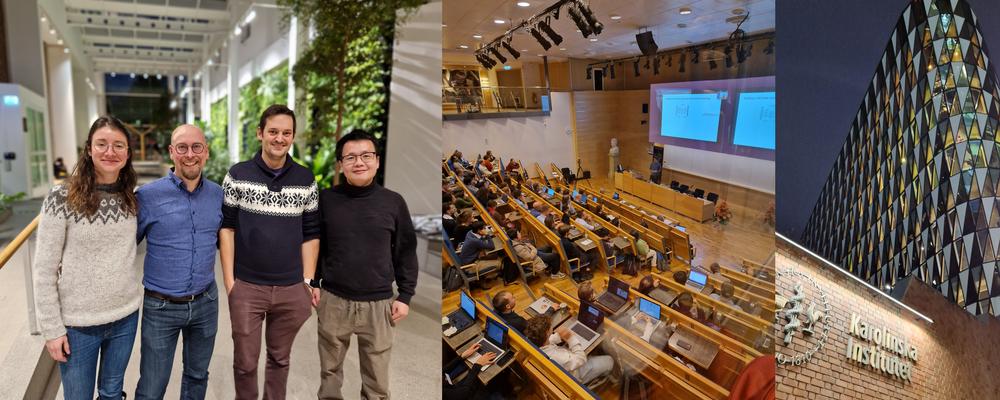“It is very impressive to see and hear about how the DDLS fellows in such short time have established new groups and are already producing fantastic results leveraging on automation, AI, and large-scale life science data.” said Ida-Maria Sintorn who is a Professor in Computerized Image Processing at the Department of IT, Uppsala University, and a member of the DDLS-CMB expert group.
Chair of the DDLS-CMB expert group is Margit Mahlapuu who also is co-director of The Wallenberg Centre for Molecular and Translational Medicine (WCMTM) in Gothenburg.
The role of the expert group includes to advise and support DDLS fellows, post docs and PhD students, advise on research strategies and profiles, and arrange activities and community events within the subject area.
Partner in the DDLS National Program
WCMTM, as well as the other Wallenberg molecular medicine centres in Lund, Umeå, and Linköping, work closely with SciLifeLab and other partners involved in the DDLS national program, bringing together researchers in molecular medicine and data analysis from across the country.
“Our aim is to connect related ongoing national initiatives within life science, boosting the important scientific exchange and collaboration.” Margit Mahlapuu said. “For example, DDLS research group leaders in the Gothenburg area – both from University of Gothenburg and from Chalmers – are part of the activities and network of the WCMTM.”
Data Science Node at Chalmers
In Gothenburg, one of the four DDLS Data Science Nodes is located at Chalmers. The node is an expert function within data science and bioinformatics support, and among other things, ensures access to open data.
Thomas Svensson, Senior Researcher at Chalmers and NBIS support manager, explains the role and aim of the node:
“By establishment of the DDLS Data Science Node in Cell and Molecular Biology, we aim to address unmet needs for the Swedish research community with a stake in data-driven cell and molecular biology. Examples can be new data services or computational services. Or hands-on support relating to analysis of data in data-driven projects.”
Ongoing Recruitment of DDLS Fellows
Currently, the second series of recruitment of DDLS fellows is ongoing at University of Gothenburg. Two fellows will be recruited to the Sahlgrenska Academy, and one to the Faculty of Science.
With the application period just having closed, a total number of 672 applications was handed in to all positions at all the DDLS partner universities. From these, 20 researchers are to be selected for DDLS fellowships.


